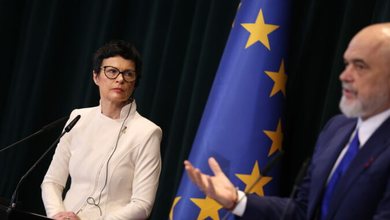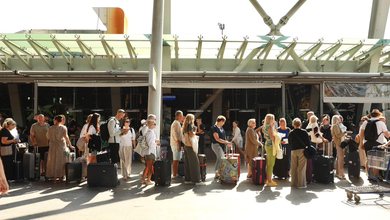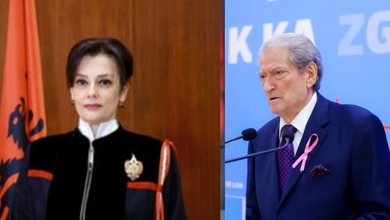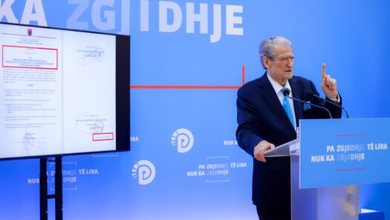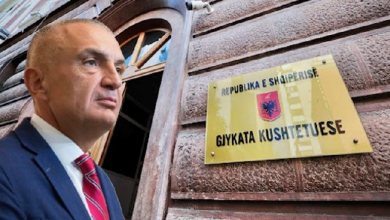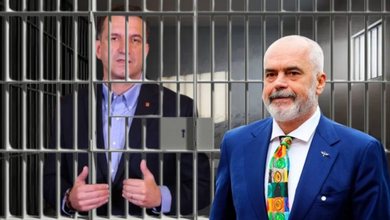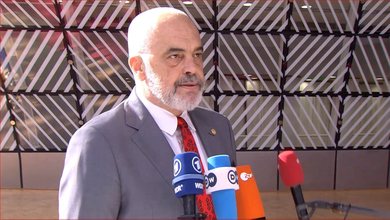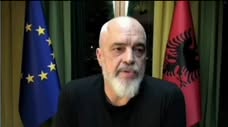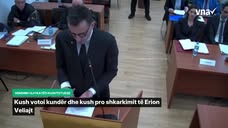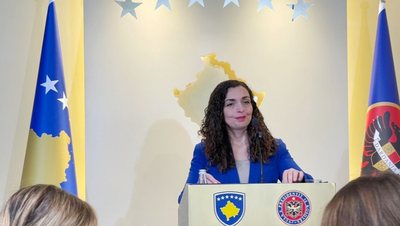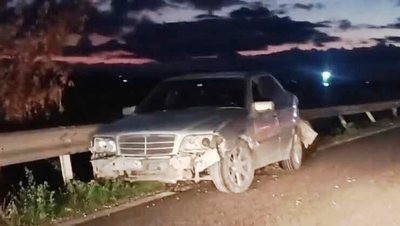
The European Commission's Progress Report for Albania, published on Tuesday, evaluates the work of the Special Prosecution Office, SPAK, in the fight against corruption and organized crime as "good progress", while performance in other areas related to governance has generally received negative or average grades.
In the area of democracy, the European Commission reserves criticism for the recent parliamentary elections, referring to the OSCE-ODIHR observer report on the "lack of a level playing field and abuse of public resources" and recommends a full electoral reform.
The work of the Assembly is also described as “partially effective” due to political polarization, a lack of dialogue between the majority and the opposition, and limitations in public consultation processes. “The Assembly is also hampered by limited oversight over the executive, while politicization of parliamentary appointments to senior positions in constitutional or independent institutions established by law remains a serious issue,” the report notes.
In this context, it is required that "the integration process should be more inclusive, cross-party and supported by effective consultation mechanisms."
The report has brought to attention concerns about the work, methodology and impact of the special parliamentary anti-corruption committee in the previous legislature, which was headed by Fatmir Xhafaj. In the chapter on democracy, in a single sentence, the EC emphasizes that “the division of competences between local and central government remains a problem”.
For public administration, the assessment is "average", while the government is required to limit the use of normative acts for budget changes and return to regular budget review processes.
Albania is assessed as having made "good progress" in aligning with the EU acquis in the field of justice, freedom and security in general, highlighting the work of SPAK as effective.
“The capacity and effectiveness of SPAK to crack down on organized crime groups has increased and the use of financial investigations has improved,” the report says.
However, in this chapter, the recommendations from last year are considered partially implemented and remain largely valid for the coming year to increase financial investigations into organized crime, including illicit trafficking, terrorism and money laundering; to make the national drug observatory operational and to address the issue of unfounded asylum requests from Albanian citizens to EU countries.
“Good progress has been made in implementing last year’s recommendations, through increasing SPAK’s capacities in financial investigations, strengthening the fight against money laundering and seizing assets related to organized crime. SPAK has further consolidated international cooperation, in particular with EU member states and EU agencies, to investigate and crack down on high-risk criminal groups, delivering first tangible results,” the report states.
Despite the progress of SPAK's work, Albania is generally assessed as "moderately prepared" in the fight against organized crime and is required to accelerate the approximation of the legal framework and strengthen law enforcement capacities and improve the efficiency of investigations, including the development of criminal and financial analysis.
Even in the chapter on the fight against corruption, SPAK's work is seen as a consolidation of "positive results" and "tangible progress" towards creating a sustainable balance.
But on the other hand, the report notes that "corruption remains widespread in vulnerable sectors..." and "cooperation with law enforcement agencies remains weak."
In this context, it is required that the strengthening of investigations and criminal prosecution "ensure more final sentences, especially at high levels, including the final seizure and confiscation of assets deriving from corruption offences…', legal improvement for the prevention of corruption and effectiveness in the transparency of the control of asset declarations by the High Inspectorate for the Declaration and Control of Assets and Conflict of Interest (HIDAKKI)
In the economic field, increased transparency and accountability for state-owned enterprises are required, including the publication of annual financial performance reports and the strengthening of the public investment management framework.
The chapter on public procurement is assessed with a negative grade as "limited progress" in the approximation of the legal framework with the EU acquis and is required to improve competitive procurement procedures and improve laws in the field of concessions and public-private partnerships (PPP) and to ensure the implementation of the Stabilization and Association Agreement (SAA) regarding intergovernmental agreements with third countries in the field of public procurement.
The judiciary and fundamental rights are assessed at a “moderate and good level of preparation” and are seen as progress in strengthening the independence and accountability of the judiciary as a result of the vetting process.
However, the EC notes that the appointments of non-magistrate members of the KLGJ and KLP and pressures to influence the system remain a challenge.
“…increasing attempts by public officials or political figures to exert undue influence or pressure on the judicial system have been observed, which remains a matter of serious concern,” the report states.
In the chapter on fundamental rights, the EC assesses the issue of property rights as a continuing problem and specifically as slow progress in the process of registration and digitalization of properties and deficiencies in transparency and integrity of the Cadastre. The EC calls for the improvement of the aspect of compensation and justice in cases of expropriation.
Freedom of expression continues to be a concern for Brussels and why the field is assessed with "limited progress".
“The situation remains largely unchanged, as media independence and pluralism continue to be affected by the overlap of political and business interests, the lack of transparency of funding sources, the high concentration of media ownership, as well as intimidation and unsafe working conditions for journalists,” the report states.
In the field of environment, the report notes that Albania has a limited level of preparation and has not made progress during the reporting period, while the adoption of laws on integrated waste management and extended producer responsibility is required.
The Commission warns that the new “Mountain Package” law could have consequences for land use and environmental management. It also highlights the lack of progress on water quality, air quality and climate protection, and calls for stronger implementation of environmental and climate legislation in line with the EU acquis. /BIRN/


